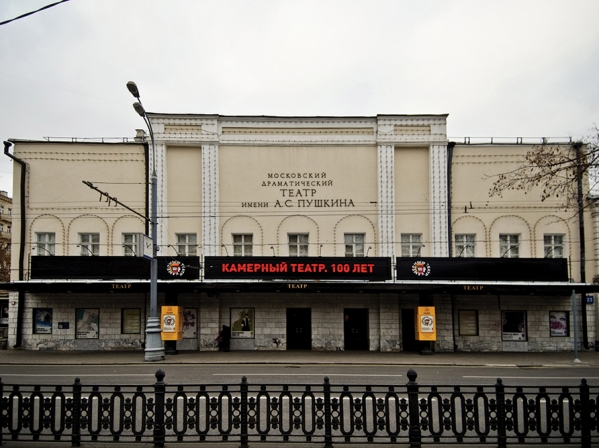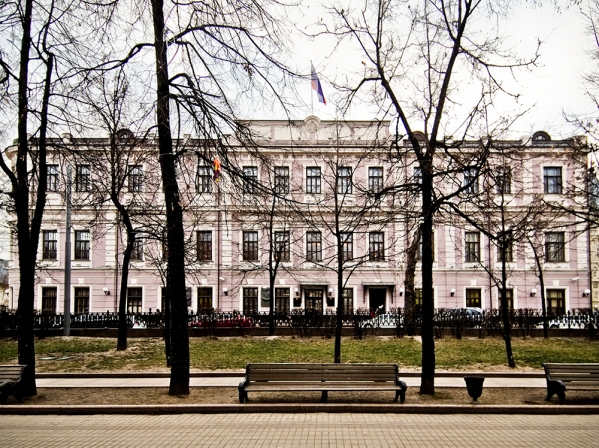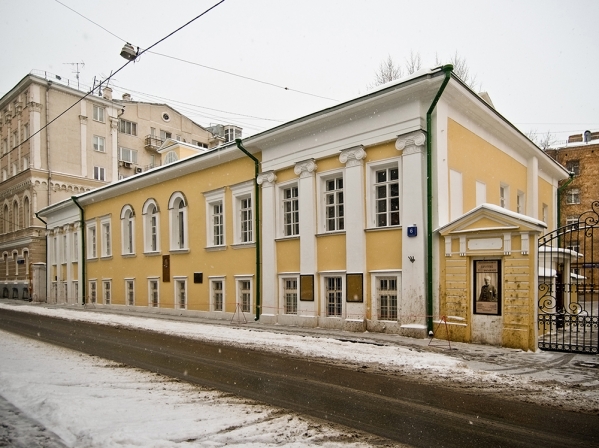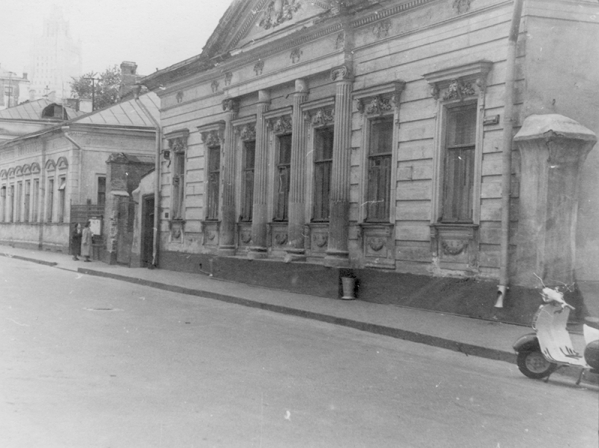The Pushkin Theatre (former Chamber Theatre)
23 Tverskoy Boulevard
Subway station «Tverskaya»
On 11th December 1928, the premier of Bulgakov’s play The Crimson Island took place, which was staged by Alexandr Tairov (the famous Russian and Soviet avant-garde theatre producer and director, founder of the Chamber Theatre). For half a year, the play lay with the Main Repertoire Committee, but was then approved for staging anyway. The show was a great success, but was brought to a close in the summer of 1929.
The approval of the staging of a play after half a year, when the author had already mentally written it off as lost in the bowels of the Main Repertoire Committee, was a real miracle. All the more so since its main theme was the freedom of the writer and the main target for Bulgakov’s satire was the Main Repertoire Committee itself. Behind the character of Savva Lukich was hidden the easily recognisable censor V. Blum, who was enraged to identify himself quickly in the extremely repellent character. The amazed Bulgakov wrote to his friend Evgeny Zamyatin on 27th September 1928, ‘Another feeling has joined the love that I have for you – awe. You congratulated me two weeks before the approval of The Crimson Island. That means you’re a prophet. I don’t know what to say about the approval. I wrote The Run and submitted it, but The Crimson Island was approved… Mystical’.
The play and the situation around it – the unexpected approval, its prohibition, the fierce criticism in the press – according to Bulgakov, became the starting point for his letter to the government of the USSR. ‘… when the German press writes that The Crimson Island is, ‘the first call for a free press in the USSR,’ (The Young Guard, No. 1, 1929) they are correct. I confess to this. To fight with censorship in whatever form it takes, under whatever government it exists, is my duty as a writer just as my calls for press freedom are. I’m a passionate admirer of this freedom and propose that if any writer were to think of proving that he does not need it, he would be like a fish trying to convince us that he does not need water’.






